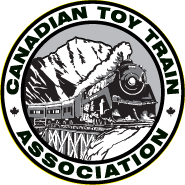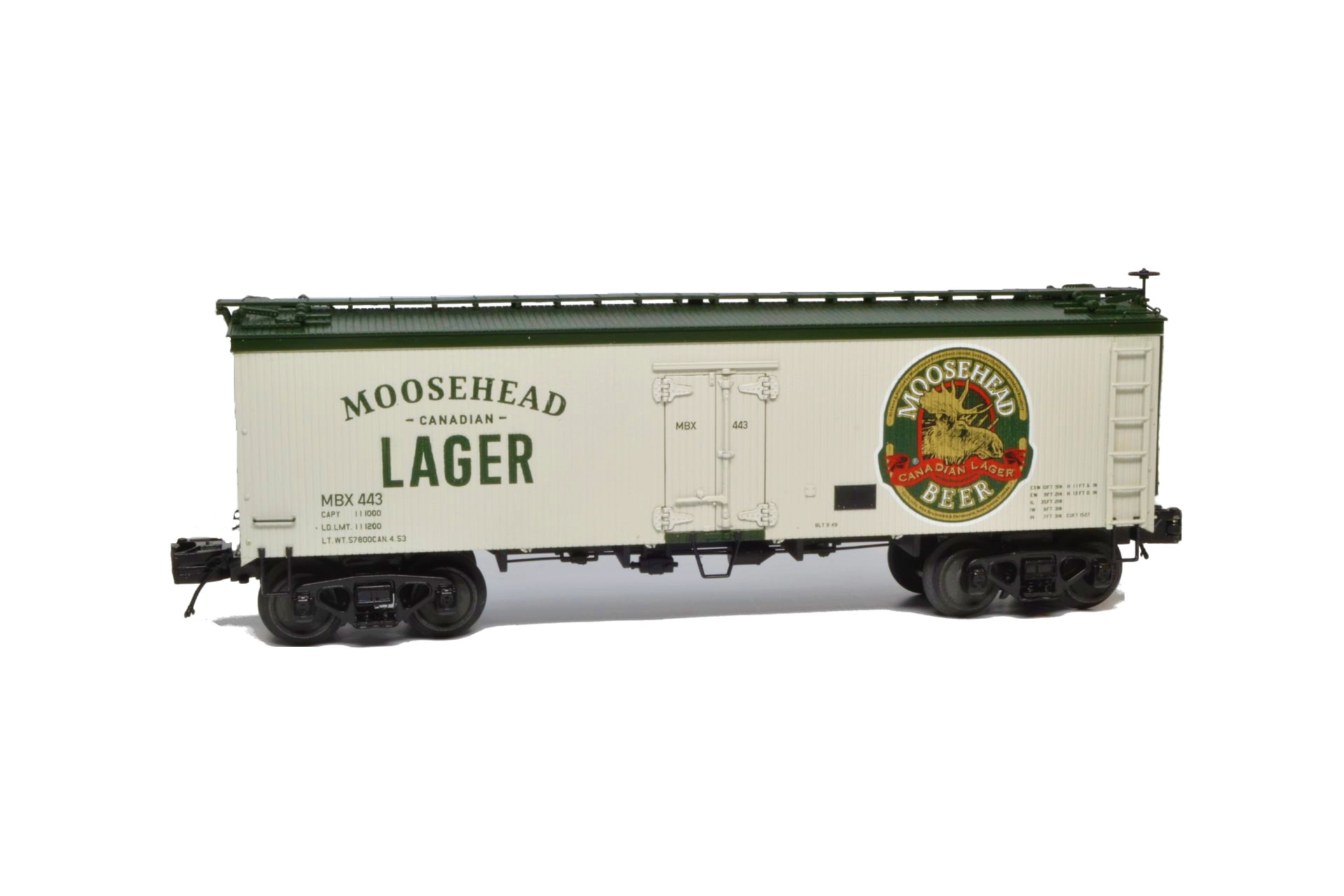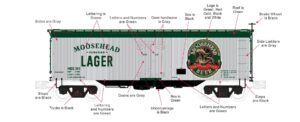Product ID: 20-94562, 20-94563, 20-94568, 20-94569 Cars produced: 236 Delivery to members: February 2022
Original MTH Artwork
SOLD OUT from CTTA Check your local hobby shop for availability
Cars may still be available to order at: Kelly’s Kaboose, Kamloops BC Central Hobbies, Vancouver, BC Eastside Trains, Kirkland, WA
June 29, 2021: The Canadian Toy Train Association is pleased to announce this very unique Moosehead Canadian Lager Beer 36′ Woodside reefer manufactured by MTH in their Premier line. This very limited production “O” gauge car comes in FOUR road numbers in 3 rail. Moosehead Beer is an iconic Canadian lager beer brewed in the Maritimes, and is popular all across Canada.
The Canadian Toy Train Association member cost is $ 85.00 CDN per car including shipping within the lower mainland and Vancouver Island. For American members, the cost is $65 USD plus $12 USD shipping.
This is our FIRST Billboard Reefer Beer car, the 7th MTH car in our Canadian reefer series, and the 13th MTH product produced for our Canadian series.
These cars are a limited one-time run. Actual production model O gauge car shown.
About this MTH Billboard Reefer model:
The coming of the railroad changed the way America ate and drank. Before the iron horse connected every town of any importance to the outside world, most food was grown or produced locally. The arrival of cheap, fast, refrigerated transport — in the form of the woodsided reefer with ice bunkers at each end — enabled local brewers, diaries, meat processors, and other food businesses to become players on a national scale.
Until 1934, shippers could advertise their wares on leased billboard reefers, each a hand-painted traveling work of art. That year, the Interstate Commerce Commission outlawed the flamboyant paint schemes because the cars often hauled shipments from other companies — whose freight bills thus unfairly paid to advertise the lessee’s products.
What doomed the billboard cars was truth in labeling. Depending on shipping needs, billboard cars often carried loads for customers other than the company named on the car sides. A beer company requesting an empty reefer for loading, for example, might find a cheese maker’s delivered to its door. Shippers were not happy when their product was carried in a car bearing a large ad for someone else’s product — they complained that their freight bill had in part paid for another company’s advertising.
Responding to these complaints, the Interstate Commerce Commission in July 1934 mandated the phasing out of billboard reefers and ruled that thereafter, the lessee’s name on a car could be no more than 12” high. By law, all billboard reefers were removed from service by January, 1937, although many soldiered on in drabber paint schemes as late as the 1960s.


